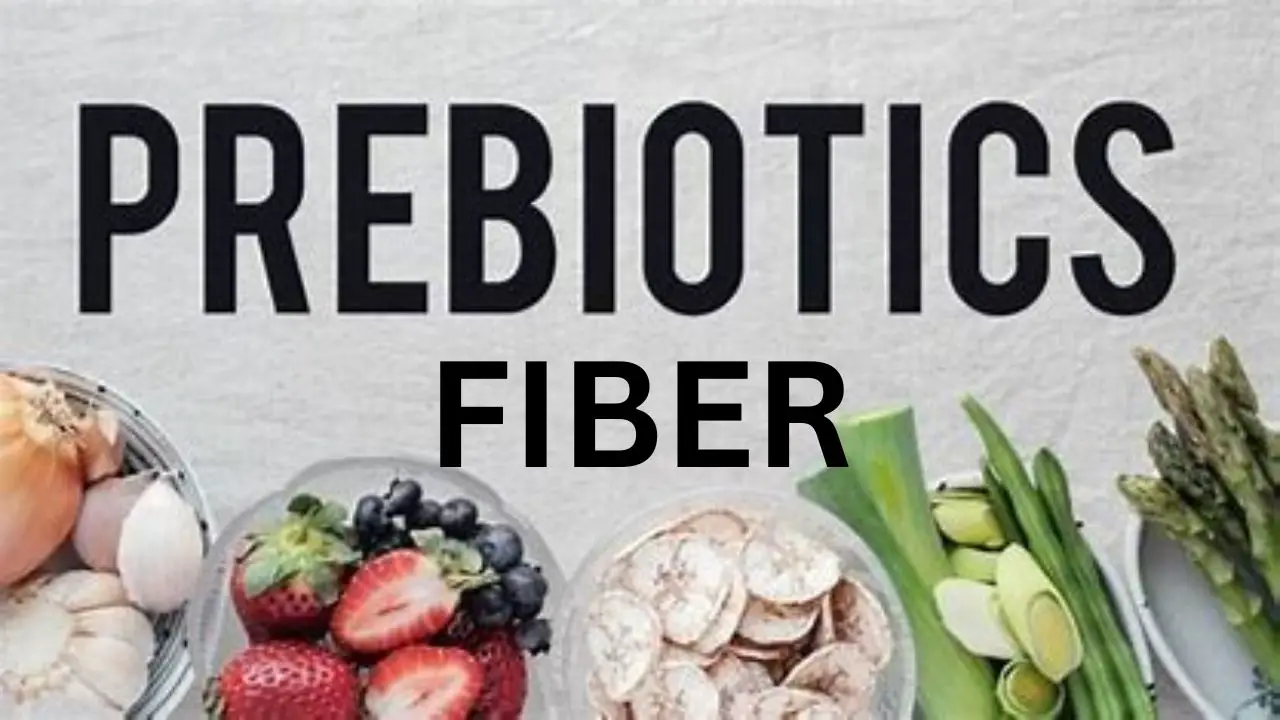Physical Address
304 North Cardinal St.
Dorchester Center, MA 02124
Physical Address
304 North Cardinal St.
Dorchester Center, MA 02124

Prebiotic fiber is a dietary fiber found in various foods. It plays an important role in promoting the growth and health of the gut. They are non-digestible compounds. These fibers resist digestion, which takes place in the small intestine and reaches the colon intact. Incorporating prebiotic foods into your diet can improve your digestive system, support your immune system, and increase the efficiency of your absorption of nutrients. In this article, we will study the sources of prebiotic fibers, their advantages for health, and the risks associated with them.

Asparagus is a green vegetable that's good for your gut. It has a kind of fiber that acts as a prebiotic, meaning it helps the good bacteria in your stomach to stay strong and healthy.

Unripe bananas have something called resistant starch. It's a type of prebiotic fiber that supports the friendly bacteria in your colon, making your digestion better.

Oats are a popular breakfast choice, and they're good for your gut too. They contain a prebiotic fiber called beta-glucans, which can make your digestive system happy.

Beans, Lentils, Peas are packed with oligosaccharides, a type of prebiotic fiber. They are like a buffet for the good bacteria in your colon.

These tasty veggies contain something called fructooligosaccharides (FOS). FOS is like a special treat for the good bacteria in your gut. It encourages their growth, making your gut healthier.
A healthy gut microbiome supported by prebiotic fiber can help reduce chronic inflammation, which is linked to various health problems, including heart disease and certain cancers.
Sustaining a well-balanced gut microbiome through the intake of prebiotic fiber is correlated with a decreased likelihood of developing chronic conditions, encompassing heart disease, specific types of cancer, and metabolic disorders.
A balanced gut microbiome influenced by prebiotic fiber may help with weight management. Some research suggests that it can assist in controlling appetite and reducing the risk of obesity.
Prebiotic fiber aids in managing blood sugar levels by enhancing insulin sensitivity, offering notable advantages, especially to individuals with type 2 diabetes or those susceptible to its onset.
A healthy gut with a diverse microbiome can better absorb essential nutrients from the foods you eat. Prebiotic fiber fosters the growth of beneficial bacteria that contribute to this improved nutrient absorption, ensuring you get the most from your meals.
Some people might encounter abdominal distention, or loose stools when they consume substantial quantities of prebiotic fiber, especially if their digestive system is unaccustomed to it. Gradually introducing prebiotic-rich foods into the diet can help alleviate these issues.
Consuming an excessive amount of prebiotic-rich foods or supplements can disrupt the balance of gut bacteria. This overconsumption may encourage the proliferation of specific bacteria, potentially leading to digestive problems or aggravating existing conditions like Small Intestinal Bacterial Overgrowth (SIBO).
In individuals with food sensitivities or allergies to specific prebiotic sources like FODMAPs (fermentable oligosaccharides, disaccharides, monosaccharides, and polyols), prebiotic-rich foods may exacerbate their symptoms. For these people, it is essential to be meticulous in choosing prebiotic sources.
People's reactions to prebiotic fiber can differ significantly. What proves beneficial for one person may not yield the same results for another. It's essential to be mindful of how your body reacts and make adjustments to your intake accordingly.
Although certain prebiotic fibers can contribute to stabilizing blood sugar, others may produce contrary results. Individuals with diabetes or those worried about their blood sugar should regularly monitor their levels and, if needed, seek guidance from a healthcare provider.
In conclusion, prebiotic fiber helps promote gut health. There are various sources for getting them, like onions, garlic, bananas, and many more. Adding these foods to a diet helps strengthen the immune system. Individuals should consume it in moderation as it has various risks, such as digestive discomfort, excessive consumption, and the potential to aggravate food allergies. Individual responses can differ, so it's important to pay attention to your body and modify as necessary. Consulting a healthcare provider or dietician is advised if you have particular health issues or dietary limitations. Prebiotic-rich foods can be a beneficial complement to a balanced diet and support digestive health when eaten consciously and in moderation.